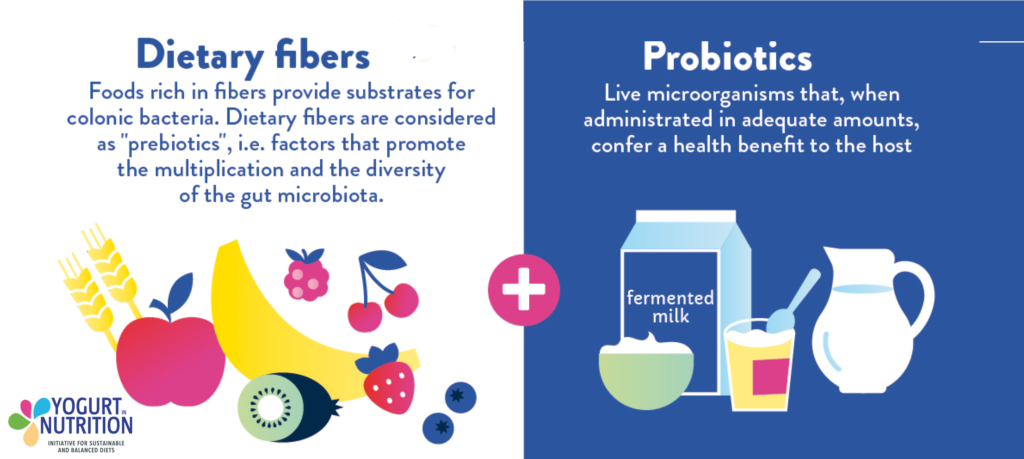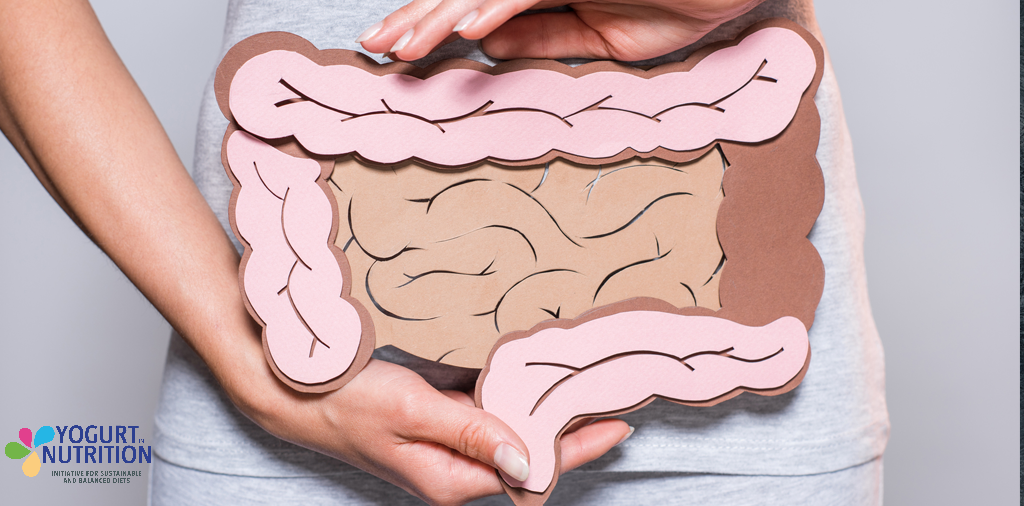Throughout the human body and especially in the digestive tract, bacterial ecosystems work in symbiosis with the human organs to enable eating, digestion and even global health and well-being. For an adult, 95% of these symbiotic microbes are found in the guts (in small and large intestines) [1].
The microbiota is defined as “the assemblage of microorganisms (all the bacteria, archaea, eukaryotes, and viruses) present in a defined environment” [2]. Thus, the gut microbiota refers to the microbes located in the human gastrointestinal tract.
The gut microbiota or gut microbiome of a healthy adult host an average of 100 trillion microorganisms, from about 1000 different species [3]. Among these micro-organisms, there are dominant species that are found in the vast majority of individuals, such as the proteobacteria [4], but the composition of the gut microbiota is specific to each individual and influenced by many factors such as genetics, medication, life environment, stress and above all dietary habits [2]. While some factors such as genetics and aging are less controllable, taking action on our diet and lifestyle can help our gut microbiota function properly.
The main role of the gut microbiota lies in digestion
By secreting some enzymes that human body does not synthetize naturally, gut microbiota metabolizes some food components, such as fibers, that cannot be digested in the small intestine. When metabolizing fibers, bacteria produce valuable small components called short fatty acids, which are much better absorbed towards systemic circulation and are beneficial to other functions in the human body [2].
The microorganisms of gut microbiota help you with immune defense
A healthy gut microbiota defends the organism integrity, by signaling intrusion of opportunist pathogens, and by degrading toxics components and allergens [2]. 70% of the actors of immunity are in the intestines. The protection of tissues and the circulatory system against contamination by microorganisms, antigens and allergens is ensured by the intestinal barrier and thus the microbiota, making it possible to ensure health and well-being [5].
It is also important to bear in mind that microbiota deficiency can have an impact on the mood and behavior, because peripheral intestinal functions are in relation with brain and cognitive nods [6].
How to take care of our gut microbiota?
More and more data suggest nowadays that lifestyle and diet can impact the gut microbiotia.
During the course of one’s life, the health of one’s microbiota may not be at its optimum, as for example during old age; it becomes less efficient and may suffer from deficiencies [2]. Many ongoing studies are exploring the link between dysfunction of the gut microbiota and inflammatory or neurodegenerative diseases such as Alzheimer’s [1] and eventually cancer. For instance, disruption to the gut microbiota was actually linked with inflammatory Bowel disease [3] and obesity development [3,7].
The three major influence factors having the strongest impact on gut microbiota are:
- The condition of birth and early life habits (delivery, feeding, infant care) [8]
- The diet
- The environment and potential exposuresto chemicals or drugs (for example PPI or antibiotics) [8]
The diet may have a great impact on gut microbiota: A balanced diet combined with a healthy lifestyle is probably the best way to contribute to gut health.
The types of food that are advisable for taking care of our gut include:
- Fermented milk such as yogurt [9,10] : they deliver many living lactic acid bacteria to the digestive tract. Once they reach the gut, these bacteria sustain the living microbes crossing the gut, at least in a short term. According to researchers, lactic acid bacteria may modulate the intestinal environment, enhance gut permeability and reduce potentially harmful enzymes produced by other bacteria.
- Fermented foods such as kombucha, kimchi and sauerkraut: they bring replenishment for good gut bacteria.
- Dietary fibers rich foods, such as fruits, legumes, vegetables or grains [11].

Gut health in children
In order to help you take care and preserve a healthy gut in children, we’ve developed two specific infographics :




